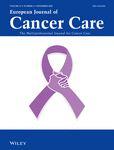Fight against cancer in Italy: What patients, caregivers and healthy citizens think about care delivery from National Health System
Funding information: This research did not receive any specific grant from funding agencies in the public, commercial, or not-for-profit sectors.
Abstract
Objective
This survey aimed to analyse healthy citizens (HC), cancer patients and their caregivers (CP&CG) perception about cancer care among six different Italian regions.
Methods
The survey for HC was conducted by a multinational market research institute (IPSOS) through a computer-assisted web interviewing system, using a dataset of people who had consented to be interviewed for previous studies. CP&CG were interviewed by patient advocates using paper questionnaires.
Results
HC completed 1831 questionnaires between May and June 2019; CP&CG filled 1779 questionnaires between May and October 2019. 55% of all interviewees felt they were adequately informed about cancer, with no disparities between regions. Overall, population was satisfied with the National Health Care System (HCS), CP&CG more than HC, probably for their personal positive experience. There were different satisfaction levels between regions regarding components of the pathway of care, but agreement about health workers' ‘human component’. Forty-three per cent of the interviewed were informed about genetic tests, 47% about innovative drugs. The percentage was greater among CP&CG (51% and 61% respectively).
Conclusions
Italian people were overall satisfied with HCS although with significant different perceptions between regions. Moreover, some critical issues were highlighted as low adherence at screening invitation and genetic tests. Understanding people's perception regarding HCS is crucial to support health policies and to improve the performance of HCS.
CONFLICTS OF INTEREST
Maria Silvia Cona, Selene Rota, Sheila Piva, Anna Maria Mancuso declare no conflicts of interest. Antonio Russo declares the following financial interests/personal relationships which may be considered as potential competing interests: honorarium for advisory boards: Bristol, Pfizer, Bayer, Kyowa Kirin, Ambrosetti; Speaker honorarium: Roche Diagnostic. Nicla La Verde declare the following financial interests/personal relationships which may be considered as potential competing interests: grants from EISAI; speaker bureau, travel expenses for conference from ROCHE, GENTILI; advisory role from NOVARTIS and CELGENE; advisor role, travel expenses for conference from PFIZER; advisory board from MSD.
Open Research
DATA AVAILABILITY STATEMENT
Data are available from authors upon request.




